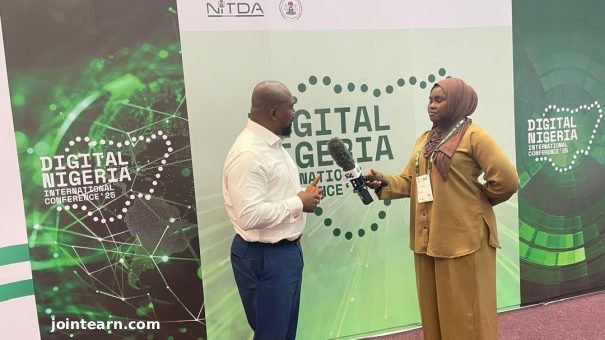
Osita Oparaugo, Founder and CEO of GetBundi Education Technology, has urged Africa to rethink how learning is delivered on the continent to fully leverage the opportunities of the digital revolution.
Speaking at the Digital Nigeria International Conference and Exhibition held from November 11–13, 2025, at the Bola Ahmed Tinubu International Conference Centre, Abuja, Oparaugo highlighted the importance of STEM education, digital skill development, mobile-first learning, and youth innovation hubs. He stressed that Africa must focus not only on learners but also on strengthening teachers and educational ecosystems.
The three-day conference, organised by the National Information Technology Development Agency (NITDA) under the theme “Innovation for a Sustainable Digital Future: Accelerating Growth, Inclusion, and Global Competitiveness”, brought together policymakers, technology leaders, and private-sector stakeholders to promote public–private partnerships and drive Nigeria’s national digital strategies.
During a panel session on “Education and the Future of e-Learning”, Oparaugo called for a shift from rote memorization to practical, problem-solving-based learning, rooted in local culture, language, and experience. He said:
“If Africa dares reimagine how we learn, we can rewrite how we live, work, and lead tomorrow.”
Oparaugo emphasized Africa’s demographic advantage, noting that by 2050, one in every three young people globally will be African, meaning the continent’s classrooms today are shaping the world’s future innovators and leaders.
He also highlighted the role of community-based innovation hubs, which blend coding, design thinking, and entrepreneurship, serving as bridges between education and employability. He urged leveraging mobile-first learning, citing Africa’s projected 500 million smartphone users by 2030, with tools like low-data apps, offline-compatible platforms, and WhatsApp-based micro-learning to expand access, particularly in rural areas.
At GetBundi, Oparaugo noted, digital learning is reaching millions of young Africans in their own languages, turning smartphones into powerful classrooms. He also cited Kenya’s Digital Master Plan and Nigeria’s 3MTT initiative as examples of governments and private tech firms aligning on digital strategies.
Oparaugo stressed the need to train teachers, reform curricula, and strengthen infrastructure to create self-sustaining ecosystems for digital literacy:
“It’s not enough to roll out courses; the entire ecosystem needs strengthening. If we scale teacher development, embed digital skills in curricula, and ensure infrastructure is in place, then impact becomes sustainable.”
He concluded with a call to believe in Africa’s potential:
“Let’s invest not only in technology but in imagination. Not only in devices, but in dreams. The next great innovators, teachers, and problem-solvers are already here, waiting for us to believe in them.”
Vice President Kashim Shettima officially opened the conference, while Dr. Aisha Garba, MD/CEO of UBEC, delivered the keynote on “Education and the Future of e-Learning”. The event hosted over 4,800 participants from 12 countries and 25 Nigerian states, featuring 12 keynote sessions, 23 panel discussions, five workshops, and two masterclasses across five thematic tracks including digital connectivity, AI and emerging technologies, digital trade, and digital skills.


Leave a Reply